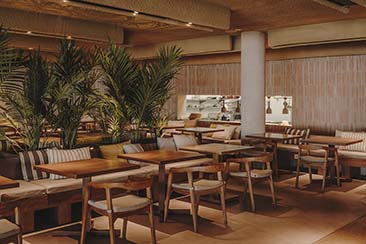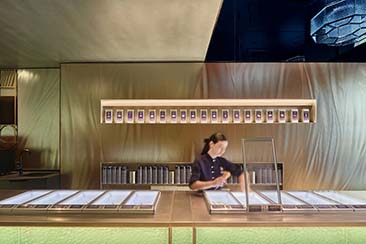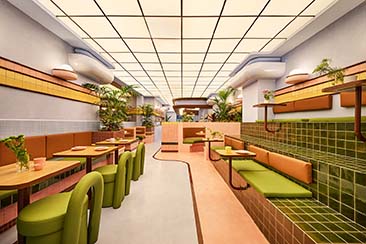I can still taste the ‘hot and raw’ prawns with tea oil, a taste sensation so mesmerising that it’s now cerebrally hard-wired. Like a dog looking at a biscuit it can’t have, the mere thought of them now causes me to drool. Hot referring to their shelled heads cooking over hot coals, raw referencing their de-shelled tails, cooked solely from the residual heat – warm but slippery and succulent, they’re just one of the many pioneering techniques that chef Albert Raurich quietly employs in his kitsch little Barcelona tapas bar. Trailblazing techniques should come as no surprise, Raurich spent more than a decade at elBulli with the Adriàs, what is surprising however, is the humble setting, the humble style of his kitchen and its cuisine.
Dos Palillos may already be the proud owner of a Michelin star, but it’s a far cry from the pomp and ceremony of elBulli; its dishes will not grace the pages of coffee table books, or art galleries, but only a fool would ignore Raurich’s quiet revolution. Translating as Two Sticks, Dos Palillos combines the cuisines of two cultures famed for eating with wooden sticks: Asia and its chopsticks, Spain with its toothpicks – fusion has found itself a tad of a dirty word in the world of gastronomy, but here it is achieved with the same precision head chef Takeshi Somekawa conjures up in the former elBulli man’s kitchen.
Housed inside Spanish footwear giant Camper’s Casa Camper hotel (there’s a second outpost at the sister hotel in Berlin), Dos Palillos fuses Spanish and Asian cultures in its aesthetic as well as on the plate; fronting up amongst the narrow El Raval streets like a familiar 1950s tapas bar, a moody Japanese-inspired open kitchen cum dining room hides behind a chain curtain. Designed by local architect – and owner of hip Passeig de Gràcia design store Vinçon – Fernando Amat, the space consistently teeters on the edge of tastelessness, and knows it. I challenge you to not wear a permanent wry grin when stepping through its doors.
Brimming with humour, but intelligent and honest, Albert Raurich’s quirky reinvention of ‘fusion’ is a subtle triumph.
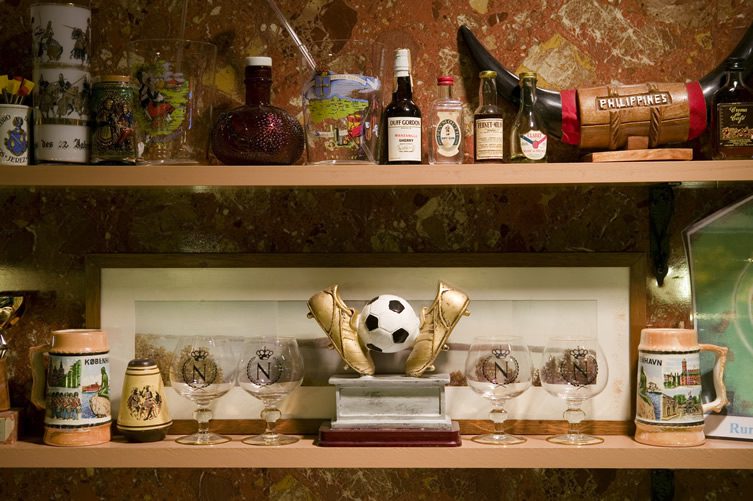
Photo © Lluís Capdevila
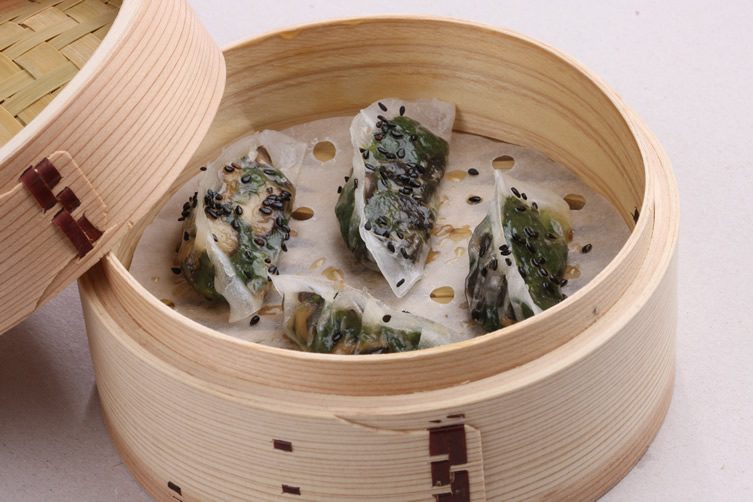
Photo © Francesc Guillamet
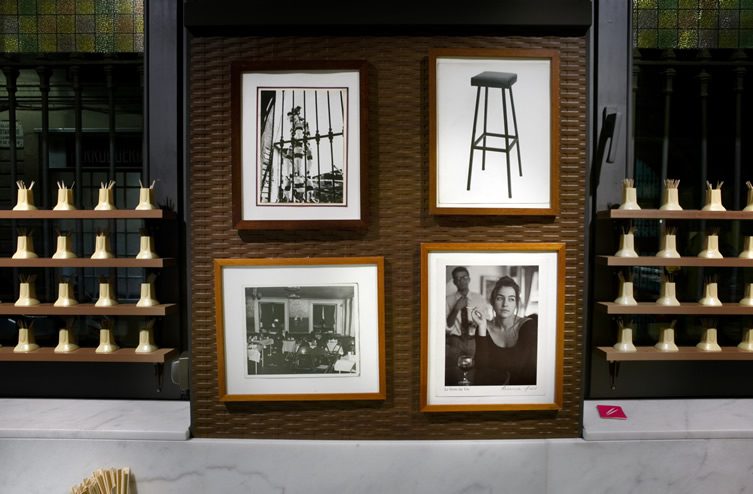
Photo © Lluís Capdevila
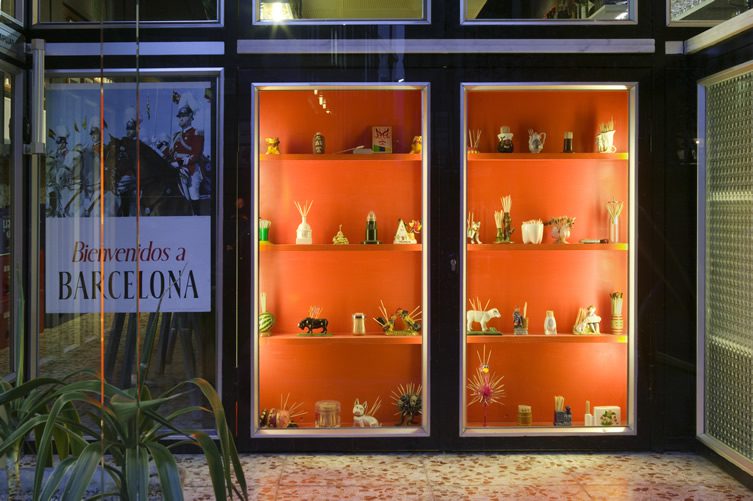
Photo © Lluís Capdevila
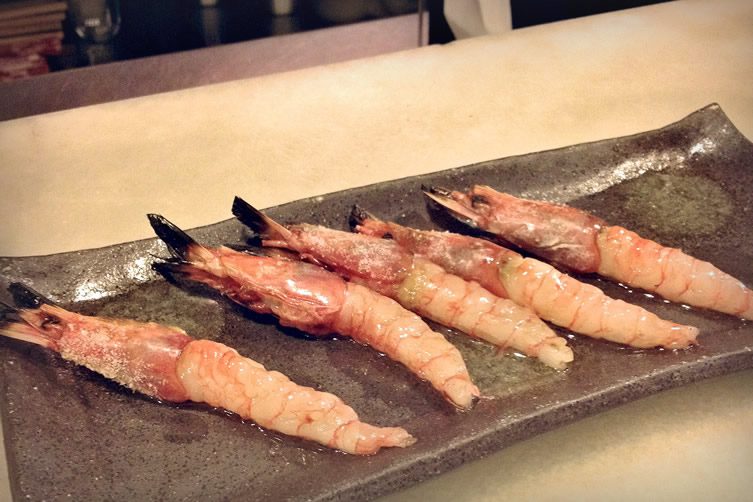
Photo © We Heart
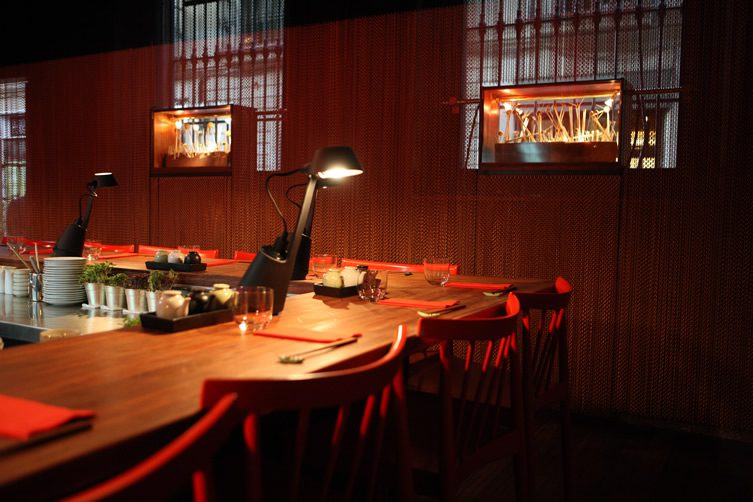
Photo © Francesc Guillamet
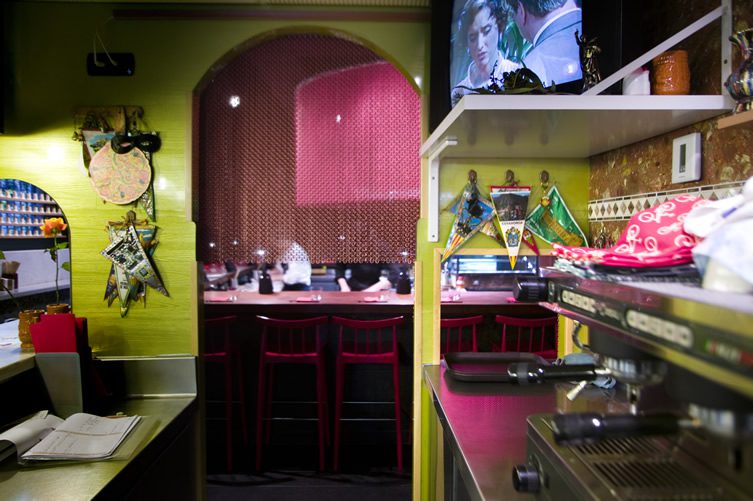
Photo © Lluís Capdevila
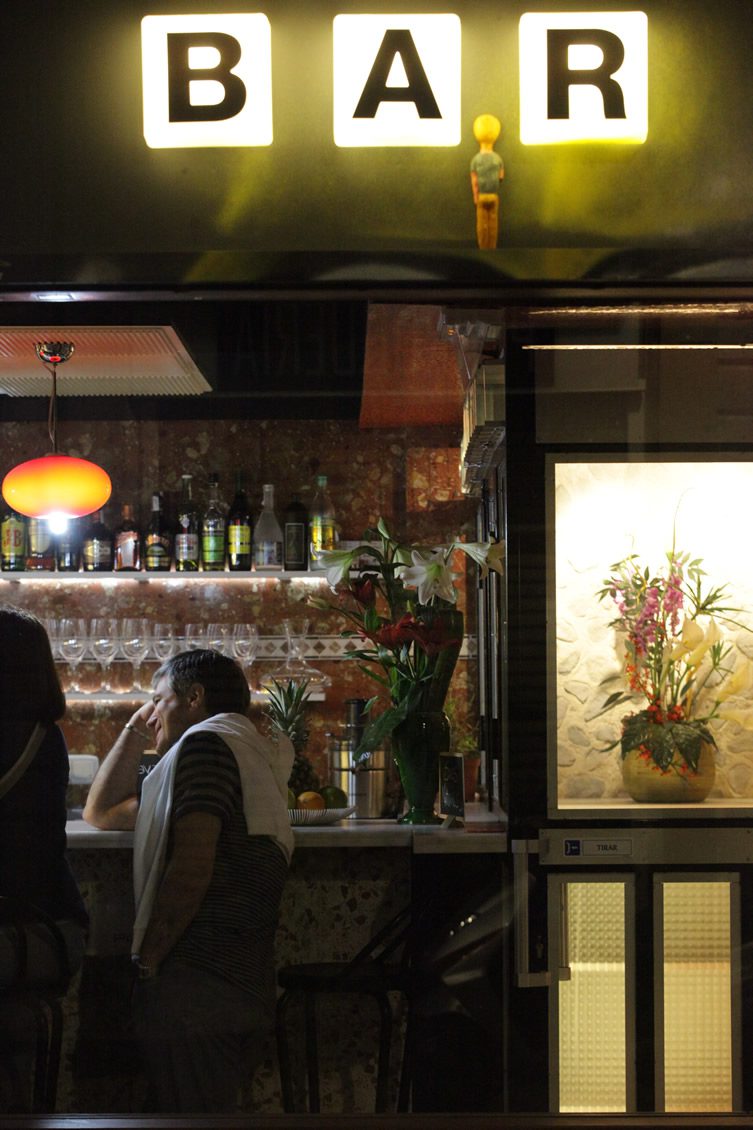
Photo © Maribel Ruiz de Ernchun
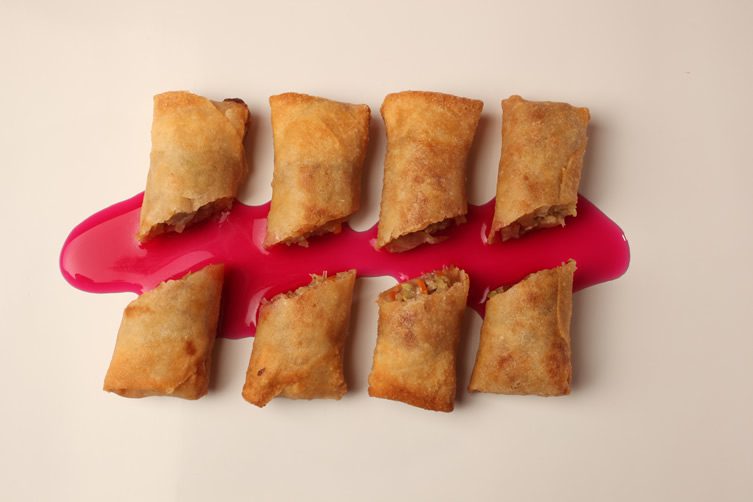
Photo © Francesc Guillamet
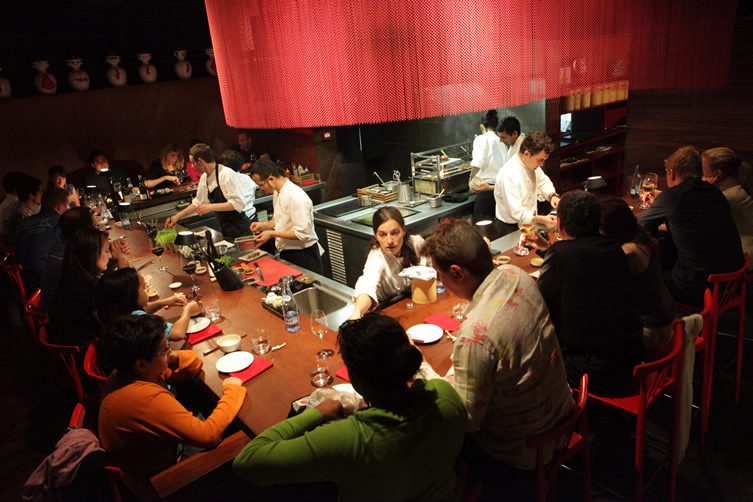
Photo © Francesc Guillamet
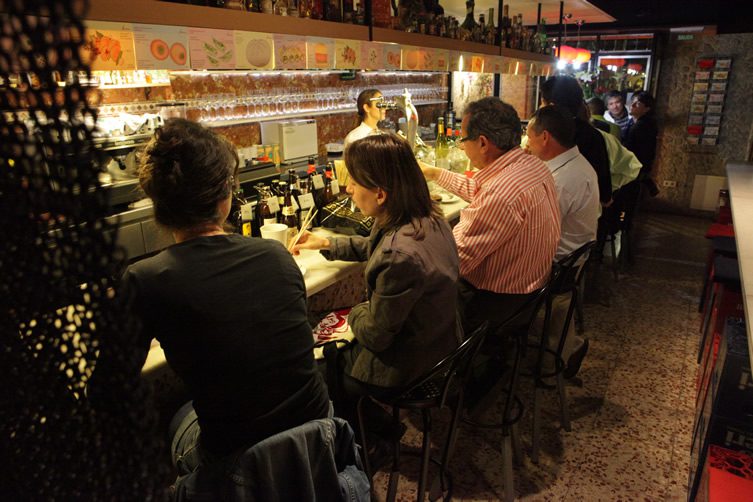
Photo © Maribel Ruiz de Ernchun
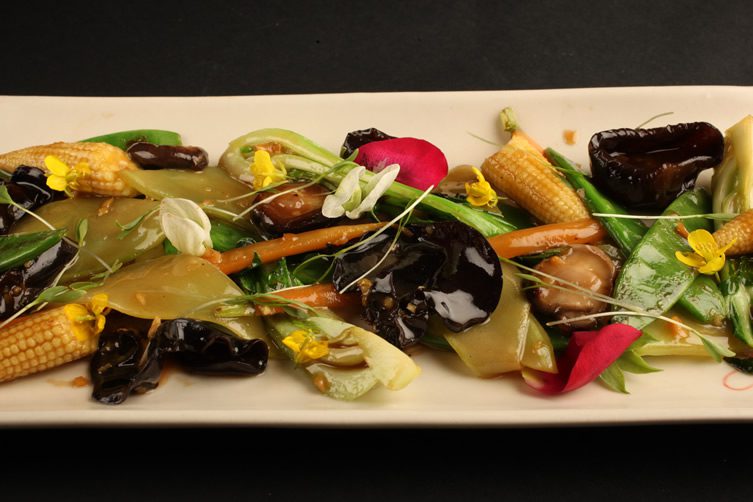
Photo © Francesc Guillamet
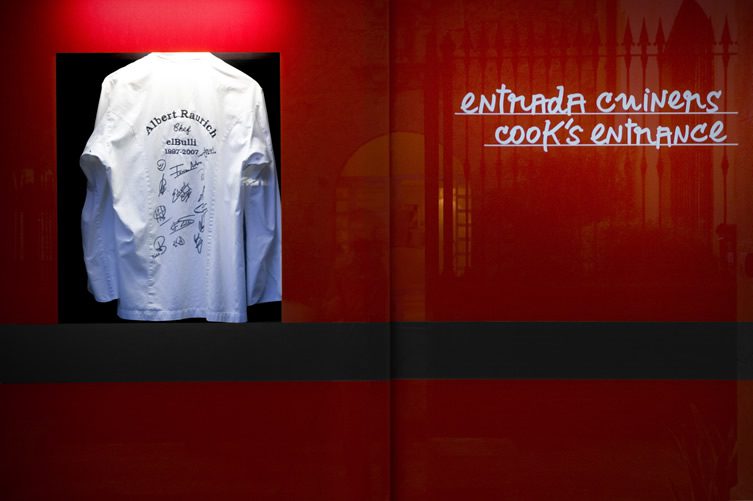
Photo © Lluís Capdevila

